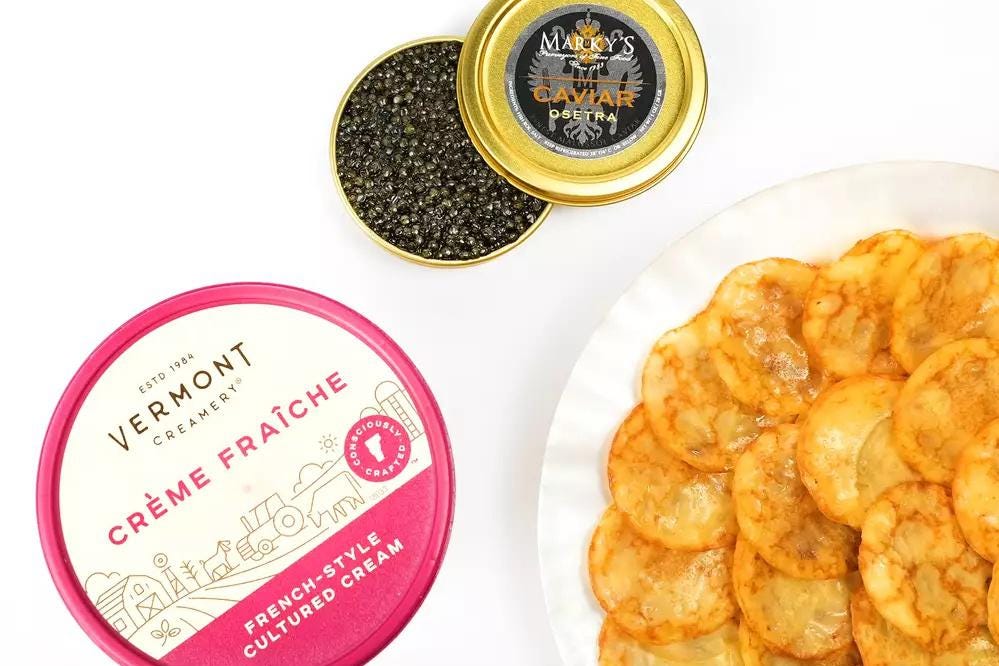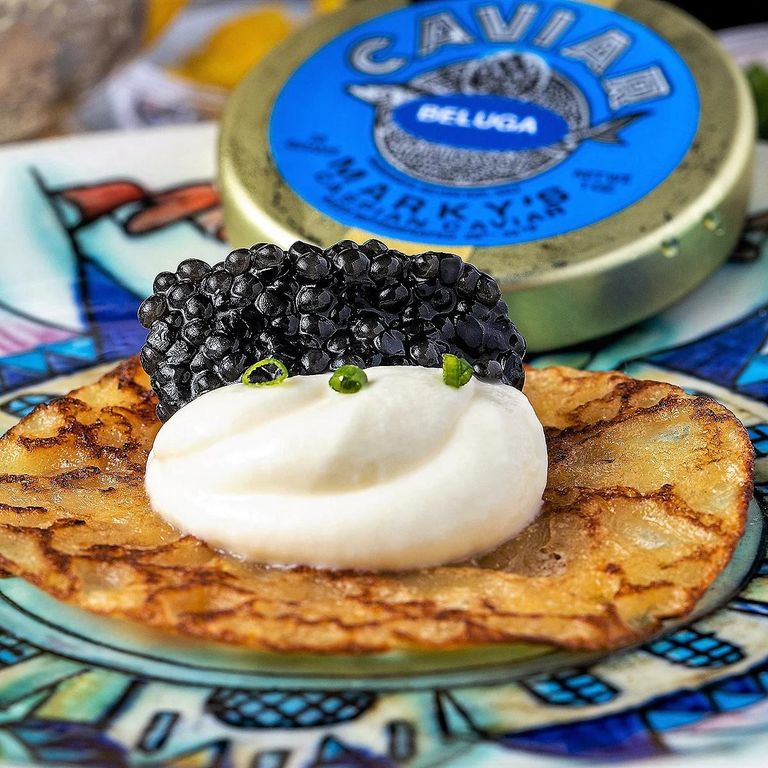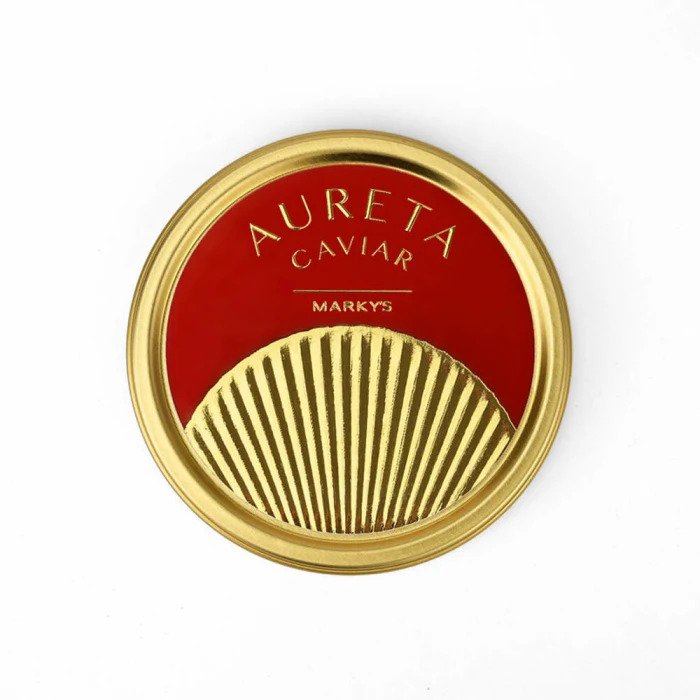Caviar in Pregnancy Safe Nutritious Choices for Moms-to-Be
Category : Food Stories, Party Ideas, Recipes, Press Room |
Posted : Jul 23, 2024
Pregnancy is a time of excitement and careful consideration, especially when it comes to diet. Expectant mothers often find themselves navigating a maze of do's and don'ts, with each food choice scrutinized for its potential impact on both mother and baby. One food that's often wrapped in mystery and luxury is caviar. It's a delicacy celebrated worldwide, but is it safe and beneficial for pregnant women? Let's explore the nuances of caviar consumption during pregnancy, its nutritional value, and how to make informed choices for a healthy diet.
What is Caviar?

Caviar is a type of delicacy consisting of salt-cured fish eggs. Traditionally, it's sourced from sturgeon species found in the Caspian and Black Sea. However, today, caviar is also harvested from other fish like salmon, trout, and paddlefish.
Types of Caviar
- Beluga Caviar: The most famous and expensive, known for its large, delicate eggs.
- Osetra Caviar: Medium-sized eggs with a rich, nutty flavor.
- Sevruga Caviar: Smaller eggs with a more intense taste.
- Salmon and Trout Roe: More affordable alternatives with a vibrant orange hue.
Nutritional Value of Caviar
Caviar is not just a luxury item; it's packed with essential nutrients:
- High in Omega-3 Fatty Acids: Vital for brain development and reducing inflammation.
- Rich in Vitamins and Minerals: Including Vitamin B12, Selenium, and Iron.
- Protein-Packed: Supports muscle growth and repair.
Caviar and Pregnancy Safety Concerns
When it comes to pregnancy, the primary concern with caviar is its preparation and storage. Raw or unpasteurized caviar can pose risks to expectant mothers.
Risks of Consuming Raw or Unpasteurized Caviar
- Bacterial Contamination: Raw caviar can harbor bacteria like Listeria, which can cause serious infections.
- High Salt Content: Excessive salt can lead to increased blood pressure and swelling.
Importance of Choosing Pasteurized Caviar
Pasteurization kills harmful bacteria without compromising the caviar's taste and nutritional value. For pregnant women, opting for pasteurized caviar ensures safety while still enjoying the delicacy.
Expert Opinions on Caviar Safety
Dr. Jane Smith, a leading obstetrician, emphasizes, "When consumed in moderation and in its pasteurized form, caviar can be a nutritious addition to a pregnant woman's diet."
Nutritional Benefits of Caviar for Pregnant Women
Caviar offers a treasure trove of nutrients that are especially beneficial during pregnancy.
Essential Nutrients in Caviar
- Omega-3 Fatty Acids: Crucial for fetal brain and eye development.
- Vitamin B12: Supports red blood cell formation and prevents anemia.
- Iron: Essential for producing hemoglobin, which carries oxygen to the baby.
- Selenium: Helps protect cells from damage and supports a healthy immune system.
Comparison with Other Pregnancy-Safe Foods
Compared to other nutrient-rich foods like leafy greens and lean meats, caviar provides a concentrated source of essential vitamins and minerals. This makes it a valuable addition to a balanced diet during pregnancy.
Insights from a Nutritionist
Nutritionist Laura Davis notes, "The high Omega-3 content in caviar is particularly beneficial for pregnant women, as it supports the developing brain and reduces inflammation."
For those interested in understanding more about the types of caviar and their differences, particularly regarding safety and quality, check out our article "Discover the Delicate Balance of Pasteurized vs Non-Pasteurized Caviar." It provides detailed insights into the benefits of choosing pasteurized caviar, which is especially relevant for pregnant women. Additionally, our piece "The Process of Pasteurizing Caviar: Ensuring Safety Without Compromising Quality" delves into the pasteurization process, highlighting why it's crucial for maintaining both safety and flavor.
Expert Opinions and Medical Perspectives
Incorporating expert insights adds credibility and helps expectant mothers make informed decisions.
Quote from an Obstetrician
Dr. Emily Johnson states, "Caviar, when pasteurized, can be a safe and nutritious option for pregnant women. Its nutrient density supports both maternal health and fetal development."
Nutritionist's Perspective
Laura Davis adds, "For those who enjoy gourmet foods, pasteurized caviar offers a delicious way to boost your intake of essential nutrients during pregnancy."
Gynecologist's Advice
Dr. Michael Lee advises, "Always ensure that the caviar you consume during pregnancy is pasteurized to avoid any risk of bacterial contamination."
Making Informed Choices
It's essential for pregnant women to make informed dietary choices, especially when indulging in luxury foods like caviar.
Selecting Safe Caviar
- Choose Reputable Brands: Brands like Marky's offer pasteurized caviar, ensuring safety and quality.
- Check Labels: Always verify that the caviar is pasteurized.
- Storage Tips: Keep caviar refrigerated and consume it within the recommended time frame to maintain its freshness and safety.
Alternatives to Caviar
If caviar is not accessible or if there are concerns about its safety, there are other nutrient-rich alternatives:
- Flaxseed and Chia Seeds: High in Omega-3 fatty acids.
- Leafy Greens: Packed with iron and folate.
- Lean Meats: Excellent source of protein and iron.
Practical Tips for Enjoying Caviar
- Moderation is Key: Enjoy caviar in small amounts to reap its benefits without the risks associated with excessive salt intake.
- Pair with Healthy Foods: Combine caviar with whole-grain crackers or a side salad to create a balanced snack.
Conclusion
Caviar, when chosen and consumed wisely, can be a safe and nutritious addition to a pregnant woman's diet. By opting for pasteurized caviar and adhering to moderation, expectant mothers can enjoy the luxury of this delicacy while supporting their health and their baby's development.
For those eager to explore more about safe and nutritious food choices during pregnancy, stay tuned for upcoming articles and feel free to share your experiences or questions about caviar during pregnancy or you can contact our customer service team for more information.
By making informed choices and consulting healthcare providers, pregnant women can enjoy a diverse and nutritious diet that includes safe, pasteurized caviar.













